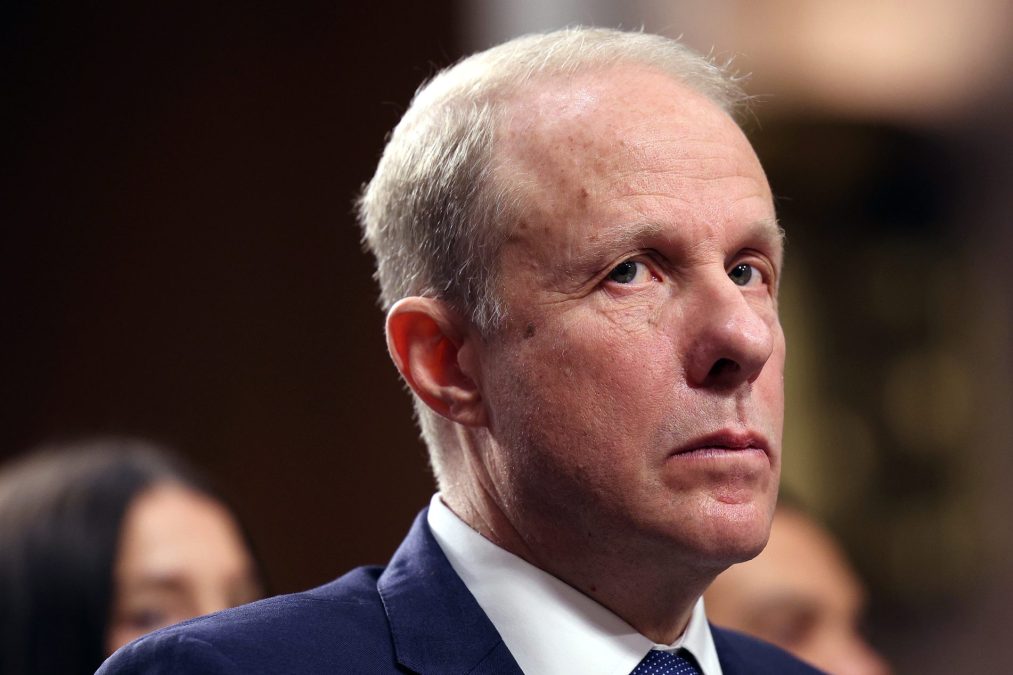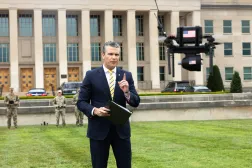Feinberg initiates Pentagon’s implementation of DOGE-influenced regulatory review

Deputy Secretary of Defense Stephen Feinberg issued a new memorandum directing the Pentagon’s near-term implementation of President Donald Trump’s DOGE-inspired executive order that seeks to pare back federal agency regulations.
Obtained by DefenseScoop and authenticated by several defense officials this week, the March 31 memo and its attached spreadsheet reveal a wide range of existing rules and guidance associated with the Defense Department’s intelligence, information technology, weapons acquisition and other portfolios that are now up for review.
The Trump administration’s new Department of Government Efficiency, or DOGE, is run by billionaire and presidential adviser Elon Musk. Since its launch near the start of Trump’s second term, DOGE has led multiple disruptive initiatives to cut what they consider wasteful spending and reduce the size of the federal workforce.
On Feb. 19, Trump signed an executive order — titled “Ensuring Lawful Governance and Implementing the President’s ‘Department of Government Efficiency’ Deregulatory Initiative” — that directs federal agencies to review and potentially cancel regulations that are deemed to be unconstitutional, innovation-stifling, not in the United States’ interests, or too burdensome on small businesses and private entrepreneurship, among other categories.
In the March 31 implementation memo that he penned to senior Pentagon leadership and defense agency and field activity directors, Feinberg designated the assistant to the secretary of defense for privacy, civil liberties, and transparency as the principal staff assistant in charge for carrying out the deregulation mandate.
He called on senior officials leading more than a dozen DOD components to go through their organizations’ regulations identified in the attachments and specify whether any “classes” from the Trump EO apply to them, and also indicate whether the rules should be changed or terminated. Some of those DOD components tasked in the guidance include the Office of the Chief Information Officer, the Pentagon’s Research and Engineering and Intelligence and Security directorates, Office of the Inspector General, as well as the Departments of the Army, Navy and Air Force.
Feinberg tasked officials to complete their spreadsheet responses and submit them by close of business April 18.
“As stated in E.O. 14219, the Administrator of [the Office of Information and Regulatory Affairs] shall consult with agency heads to develop a Unified Regulatory Agenda that seeks to rescind or modify, as appropriate, regulations that fit within the classes identified” in the memo, he wrote.
Regulations that pertain to the Pentagon CIO’s Cybersecurity Maturity Model Certification (CMMC) program appear to be among hundreds of rules up for review, according to the memo attachments viewed by DefenseScoop. Two other notable tech-aligned regulatory inclusions that are set to be evaluated are R&E guidance on protecting human subjects during research experiments and an I&S policy on cloud service offerings.
“Deputy Secretary Feinberg’s directive helps to ensure DOD fully supports President Trump’s Executive Order to cut red tape and unleash prosperity, while maintaining our focus on national defense and mission-critical priorities. This memo demonstrates that under Secretary Hegseth’s leadership, we’re actively moving out to eliminate unnecessary bureaucracy, streamline our operations, and refocus resources on warfighter readiness and strategic priorities,” Eric Pahon, spokesman for the deputy secretary of defense, told DefenseScoop Wednesday.






